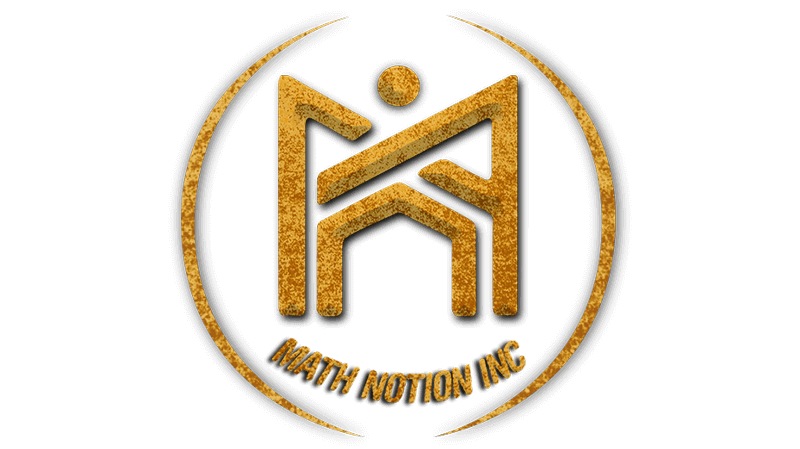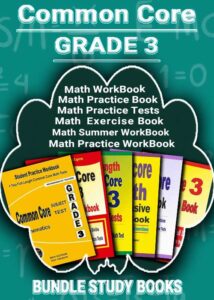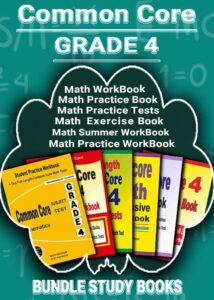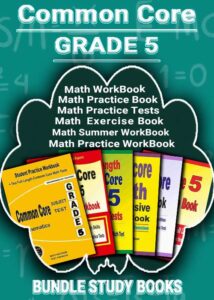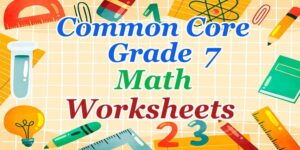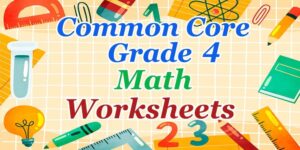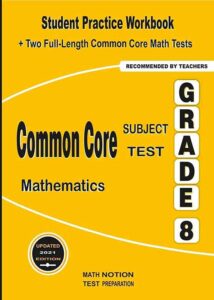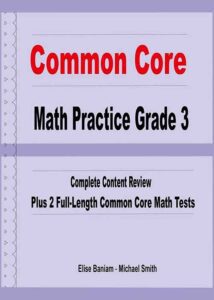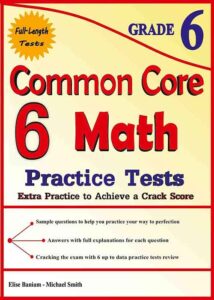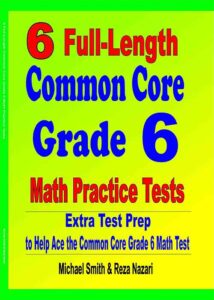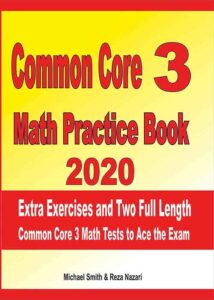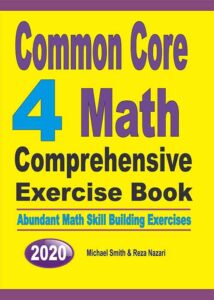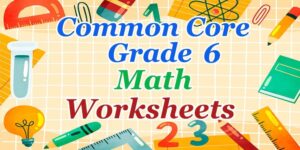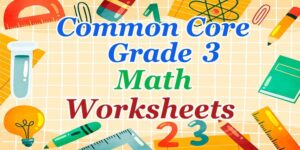
Study Time: 5minutes
How to Prepare for the Common Core Mathematics?
The Common Core State Standards (CCSS) in Mathematics are designed to foster a clear and structured understanding of mathematical concepts among students. Emphasizing real-world problem-solving and critical thinking, these standards comprise eight essential mathematical practices developed by educational experts and are grounded in research. These practices encourage students to deepen their learning and establish a robust foundation for ongoing academic progress. Understanding and mastering these standards is crucial for students as they progress through their educational journey.
Critical Strategies for Effective Preparation:
-
Benchmark Assessments for Student Evaluation: Benchmark assessments are pivotal in identifying a starting point for instruction and focusing on specific topic areas. They help in assessing students’ proficiency levels in the standards. Utilizing these benchmarks can streamline instructional efforts and reduce preparation time for exams.
-
Emphasizing the ‘How’ in Teaching: The CCSS encourages a more profound knowledge synthesis without prescribing specific teaching methodologies. This allows educators to adopt flipped or project-based learning strategies to bolster critical thinking and argumentative skills. Setting goals based on educational methods can align classroom learning with these standards more effectively.
-
Encouraging Independent Practice: Allowing students to practice learned concepts independently reinforces retention and recall, especially in high-stress environments like testing. Engaging students through diverse instructional modalities such as videos, audio, and physical activities can enhance their learning experience.
-
Educator Preparedness: Adapting to the pedagogical shift introduced by the Common Core is a significant challenge for educators. Ongoing and high-quality professional development is crucial. Leveraging workshops, tutorials, and the collective wisdom of fellow educators can aid in preparing students effectively for Common Core assessments.
-
Familiarizing Students with Digital Test Formats: Despite being surrounded by technology, not all students may be adept at handling the digital format of Common Core assessments. Familiarizing them with the types of devices and the format of technology-enhanced items used in these assessments is as essential as the content itself.
Supporting Resources and Further Information:
For additional insights and resources to aid in the preparation for the Common Core Mathematics Test, visit our website. We offer a selection of the best books and materials tailored to meet the Common Core Math Test requirements.
By incorporating these strategies and resources, students and educators can approach the Common Core Mathematics Test with confidence and a well-rounded understanding, paving the way for academic success in this crucial area.
For more detailed information and guidance, please visit our website to explore further.
Understanding the Core of Common Core Mathematics:
At the core of Common Core mathematics are eight standards for mathematical practice established by educational experts. These standards prioritize depth over breadth in learning, ensuring students build a robust foundation for further studies. The key standards include:
- Making sense of problems and persevering in solving them.
- Reasoning abstractly and quantitatively.
- Construct viable arguments and critique others’ reasoning.
- Modeling with mathematics.
- Using appropriate tools strategically.
- Attending to precision.
- Looking for and making use of structure.
- Recognizing and using patterns in repeated reasoning.
These standards foster deep understanding and applicability of mathematical concepts in various real-life scenarios.
Effective Strategies for Test Preparation:
-
Benchmark Assessments: Utilize benchmark assessments to gauge students’ current knowledge levels. This helps identify focus areas for instruction and understand how students’ proficiency aligns with the standards. Benchmarking is critical for efficient lesson planning and reduces the workload during the exam season.
-
Focus on Teaching Methodology: The CCSS allows educators to choose instructional methods. Innovative teaching models like flipped classrooms or project-based learning can be highly effective. These methods support critical thinking and help students engage deeply with the content.
-
Practice for Mastery: Encourage students to practice independently to reinforce their learning. Diverse instructional modalities can keep students engaged and motivated, including visual, auditory, and kinesthetic learning strategies.
-
Teacher Preparation: The shift to Common Core standards can be challenging for educators. Ongoing professional development is crucial. Participating in workshops, online courses, and collaborative teaching sessions can provide valuable insights into effective Common Core teaching strategies.
-
Familiarize with Next-Generation Test Formats: Ensure students are comfortable with the digital format of Common Core assessments. Familiarity with the test device and format reduces anxiety and improves performance. Practice sessions using technology-enhanced items are essential.
-
Leverage Online Resources: Online resources and platforms offer an array of tools for students and teachers to prepare for the Common Core Math Test. These can range from interactive problem-solving exercises to full-length practice tests that mimic the actual test environment.
-
Utilize Quality Study Materials: Selecting the right study materials, including textbooks and practice books aligned with the Common Core standards, is vital. These resources should cover all topics in-depth and offer a variety of problem-solving exercises.
-
Promote Collaborative Learning: Encourage group study sessions and collaborative problem-solving among students. This helps students learn from each other and enhances their understanding through teaching and explaining concepts to their peers.
-
Regular Review Sessions: Conduct regular review sessions to revisit key concepts and ensure retention. These sessions can include direct instruction, group activities, and individual assessments to cater to different learning styles.
-
Feedback and Support: Provide constructive feedback on students’ performance in practice tests. Personalized support and guidance can help students address their weaknesses and build confidence.
-
Incorporate Real-World Examples: Connect math concepts to real-world applications. This makes learning more engaging and helps students understand the relevance and practicality of their mathematical skills.
-
Stress Management Techniques: Teach students stress management techniques like deep breathing or mindfulness to handle exam pressure effectively. A calm and composed mind can significantly improve test performance.
-
Parental Involvement: Encourage parental involvement in students’ test preparation. Parents can support their children’s learning process by providing a conducive study environment at home and helping them maintain a balanced routine.
-
Track Progress: Regularly track and assess students’ progress through quizzes and practice tests. This helps in timely identification of areas that need more focus and adjustment in teaching strategies accordingly.
In conclusion, preparing for the Common Core Mathematics Test requires a multifaceted approach, blending content knowledge with strategic preparation and psychological readiness. By embracing these strategies, students and educators can navigate the challenges of the Common Core standards effectively, paving the way for academic success in mathematics.
For more insights, resources, and expert guidance on preparing for the Common Core Math Test, visit our website. Discover a wide range of materials, from comprehensive study guides to innovative teaching tools, tailored to enhance your preparation journey.
